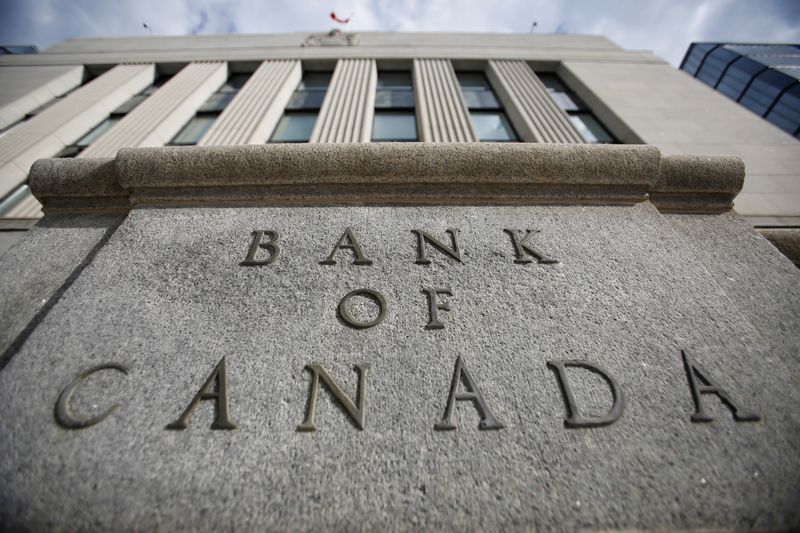By Julie Gordon and David Ljunggren
OTTAWA (Reuters) - The Bank of Canada said on Wednesday it expects interest rates to remain at current record lows into 2023, as it shifted its asset purchase program to focus on long-terms bonds and warned of a "long slog" towards a post-pandemic recovery.
The central bank, in an update of its economic projections, also said a second wave of coronavirus infections would have a pronounced effect on Canada's near-term growth. New infections have surged in recent weeks leading to targeted restrictions.
The BoC held its key overnight interest rate at 0.25%, as expected, and reduced its bond-buying program to C$4 billion per week from C$5 billion. It also tweaked that program towards longer-term bonds to help it provide as much stimulus as before.
"If you are a household considering making a major purchase, if you're a business considering investing, you can be confident that interest rates will be low for a long time," Governor Tiff Macklem told reporters at a press conference.
While the central bank now expects a smaller economic contraction in Canada in 2020 than previously forecast, it also notched down its growth outlook for 2021. It did not change its outlook for 2022. It expects economic activity to return to pre-pandemic levels at the start of that year.
"What we're saying is, 'We're going to get through this, but it's going to be a long slog,'" Macklem said.
Macklem also clarified previous comments on negative rates, saying the bar "would be very high" and that the idea was not discussed at the bank's most recent policy talks.
"In the current situation, it's not something that we think would be very helpful, in fact it could be disruptive," he said.
The bank noted its projections assume new coronavirus outbreaks will be managed by targeted containment measures, but said the impacts could be more severe than anticipated. Deaths nationally topped 10,000 on Tuesday.
"There is a serious risk ... that broader or more intensive restrictions could be required," it said in its quarterly Monetary Policy Report.
The Bank of Canada said it did not expect the output gap to close until 2023, with rates at their effective lower bound until that economic slack is absorbed, and forecast overall inflation to remain below its 2% target through 2022.
The central bank also said it expects quarterly growth patterns to be "unusually choppy" due to localized COVID-19 outbreaks and containment measures, along with varied rates of recovery across industries.
"I think it's quite clear that they're driving home the point that the economy will need stimulus, both fiscal and monetary, for quite some time," said Douglas Porter, chief economist at the Bank of Montreal.

The Canadian dollar was trading at 1.3315 to the greenback, or 75.10 U.S. cents, continuing a slide against its U.S. counterpart as investors fretted over rising coronavirus cases.
